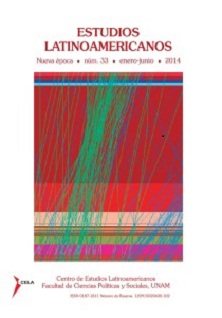Labor recomposition and labor flexibility processes in Argentina
Main Article Content
Abstract
Since 2003, Argentina has gone through a process of labor reconfiguration that led to a substantial drop of unemployment, an increase in wages, a revitalization of collective bargaining, an encouragement of local policies to bring back the industrial basis and the renewal of trade unions. Tenyears after the start of this new economic and political cycle, we assess those changes and transformations, emphasizing on the characteristics and contents of collective bargaining of the 1990s. Our central objective is to understand critically the changes in the labor market and labor relations by analyzing their potential and limitations in view of the trends observed in the neoliberal period. More specifically, we are interested in exploring the extent of how flexible policies continue to be in the collective bargaining table.
Downloads
Download data is not yet available.
Article Details
How to Cite
Delfini, M., Drolas, A., & Montes Cató, J. (2014). Labor recomposition and labor flexibility processes in Argentina. Estudios Latinoamericanos, (33), 105–126. https://doi.org/10.22201/cela.24484946e.2014.33.47218
Citas en Dimensions Service

Este obra está bajo una licencia de Creative Commons Reconocimiento-NoComercial-SinObraDerivada 4.0 Internacional.

